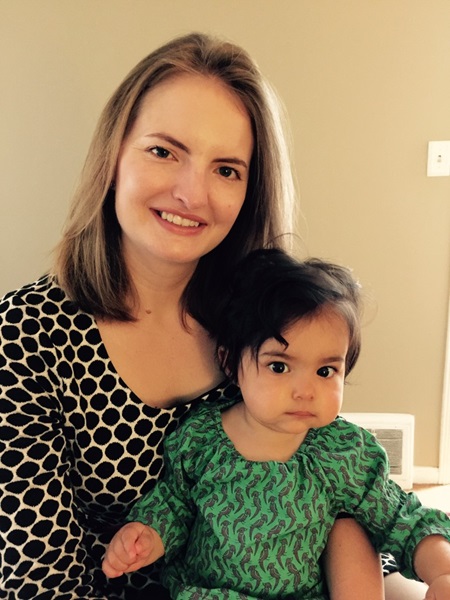I Had a Baby and Left BigLaw … But Not for the Reasons You’re Thinking
February 3, 2016
If I told you I left BigLaw shortly after having my first child, what would your first thought be? That I must have wanted to spend all my time with my baby? Or at least that I didn’t want to work nights and weekends anymore? Or perhaps that working in BigLaw simply isn’t compatible with being a new parent? It’s comfortable to fall back on those explanations because they’re familiar, but the truth is a bit more nuanced than that. First, a little bit of context. I was an associate at Nixon Peabody in San Francisco when I got pregnant with my first child. I went on maternity leave with the full intention of returning to work—and I did. I returned to work full-time and gave it my best effort. After a few months, I decided to try an 80% schedule.
Shortly after that, I quit to start my own consulting business. With only that little bit of information to go on, I’m sure many people would assume I left for the “familiar” reasons, but it’s not that simple. If we’re going to meaningfully address the problem of women leaving BigLaw, then we first need to understand the real reasons behind the departures. I can start by explaining why the stereotypical explanations didn’t hold true for me.

I did not leave BigLaw to spend all day with my daughter. I am grateful to have had a long maternity leave (by American standards), but I did want to return to work. I did not quit the firm so that I could “work from home” and take care of my daughter at the same time (any parent knows how impossible that is).
Instead, I have kept my daughter in her wonderful daycare 5 days a week. She loves socializing with the other children during the day and we get spend quality time together every morning and evening, and all weekend long. Meanwhile, I spend the weekdays fulfilling my professional goals (and replenishing my stores of maternal patience).
I still work (some) nights and weekends. This surprises even me. When I returned to the firm after maternity leave, my cases did have a few emergencies that required me to stay late or work on the weekend unexpectedly—and that was stressful.
I thought that what I wanted was a job where things weren’t quite so urgent, and I could have nights and weekends to myself. But even though I still find myself working the occasional late night or weekend as a consultant, the experience is quite different.
For one thing, I have positive motivations because I’m in business for myself and I’m passionate about the work I’m doing. For another, I have much more control over my schedule. If I want to spend part of my day running errands and then work on the computer after my daughter goes to bed, I can make that choice.
I didn’t get mommy-tracked by the firm. I have heard lots of stories of female associates who felt marginalized when then decided to work less than a full-time schedule. In fact, it was because of those stories that I tried returning at 100%.
But I ended up cutting back to 80% anyway (working 4 days a week) because I needed one “me” day a week. To my surprise, the 80% schedule worked well. I was on a lumbering complex litigation that rarely had emergencies, and the partners on the case were respectful of my 4-day schedule.
The reason I ended up quitting was not because I couldn’t make it work as a mother in BigLaw, but rather that surviving the first year of motherhood gave me the courage to step away from BigLaw so that I could pursue my true passion—legal design.
This is not to say that law firms don’t have any problems. Ultimately, I think the billable-hour model is problematic for anyone who wants to get his day’s work done efficiently so that he can turn to childcare (or other non-work) responsibilities. That is why I am now working to redesign not only the law, but also the BigLaw business model.
Alexandra Devendra is a freelance attorney and legal design consultant based in San Francisco. She consults for legal tech startups and other attorneys who want to innovate the legal profession. She also facilitates design-thinking workshops and speaks internationally about legal design and visualization of the law. Twitter: @alixdevendra